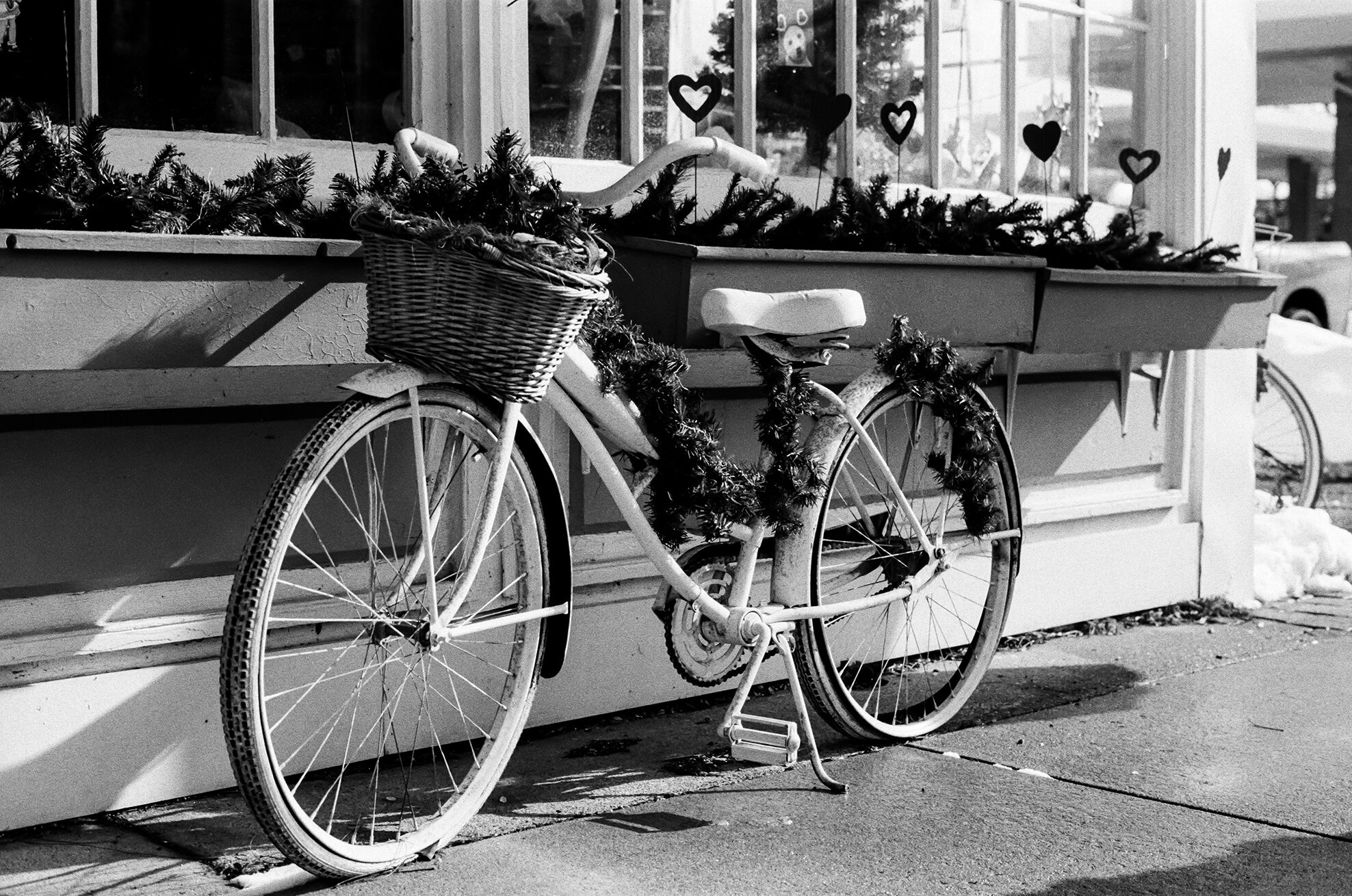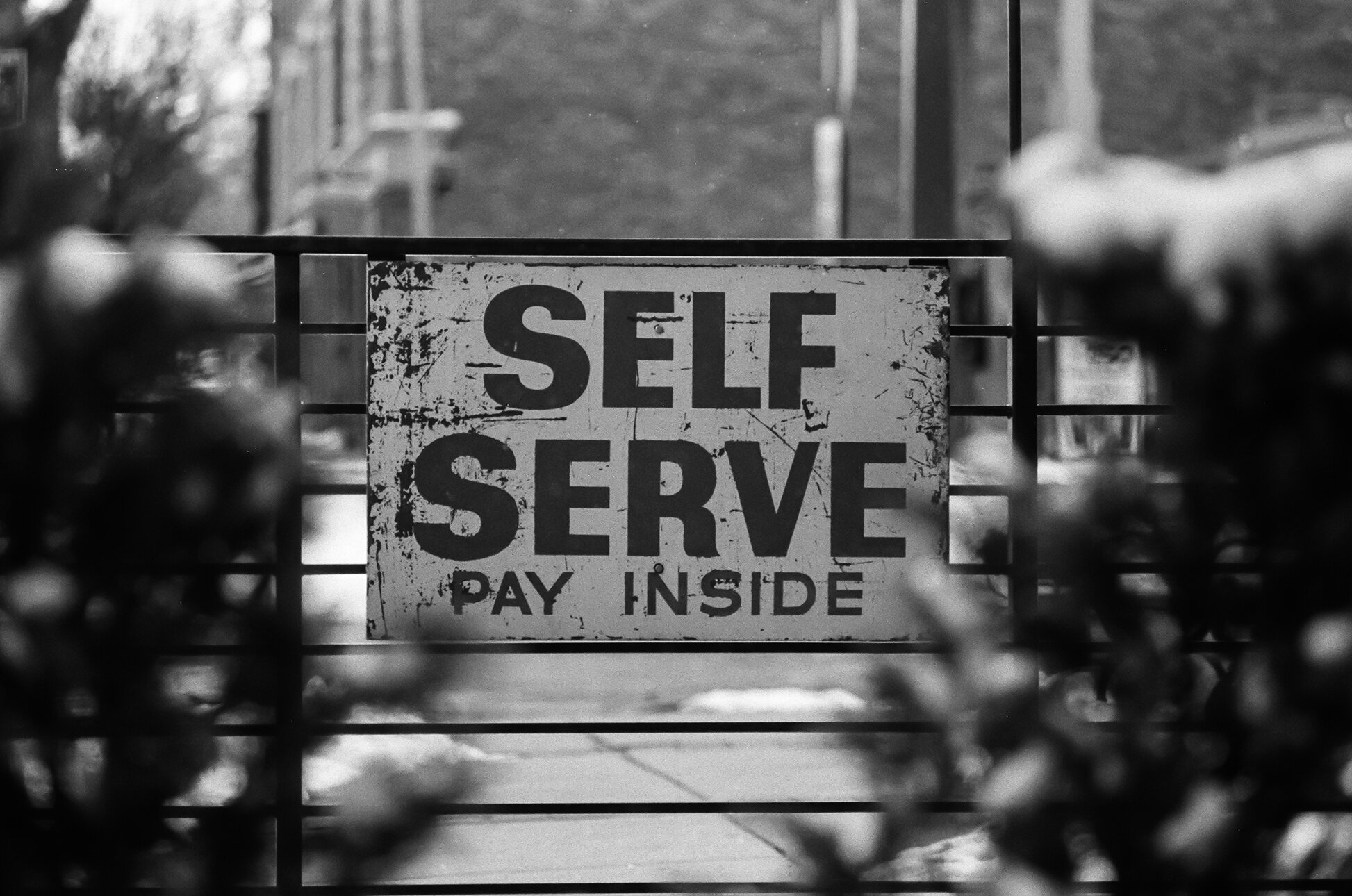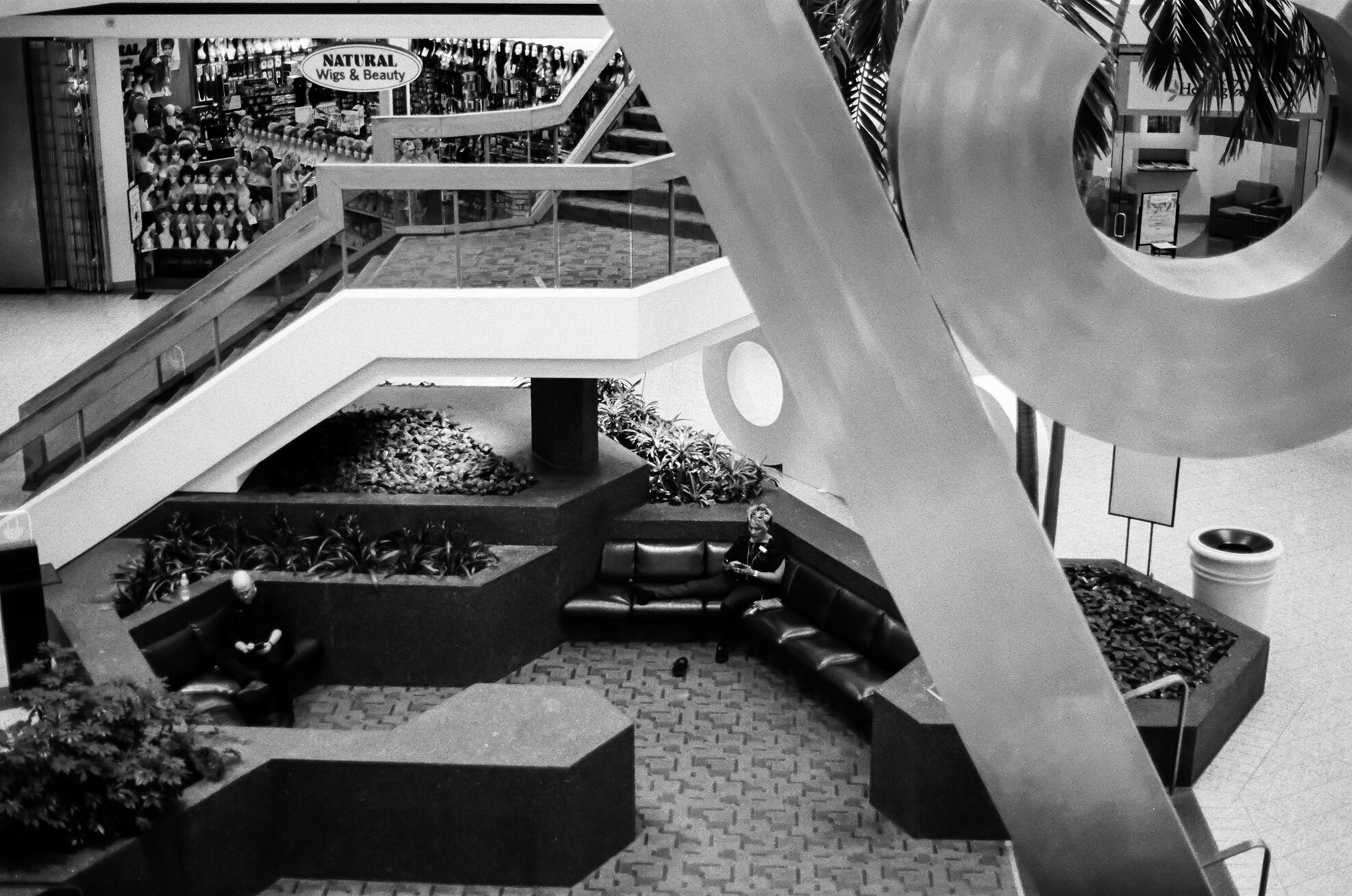Hometown
Series
February 23rd, 2020
Medium: Scanned 35mm film
When people ask me what my hometown is, I tell them Shelby Township, Mi. Not a name that elicits a warm, welcoming, or strong cultural feel. I spent way more time than in just Shelby. My true hometown is a massive area spanning many little cities in North Metro Detroit like Utica, Sterling Heights, Rochester, Romeo, and now Oxford. These are all in the area of which I identify.
But what is the identity of this large area? Is it possible to find one cohesive theme?
Despite not knowing for sure how I define my "hometown," I sought out anyways to capture what resonated with the perception I had in my head. It didn't always match the reality.
These towns aren't new. The main streets of all these cities are full of buildings from the early 20th century. Yet, what surrounds these downtown areas is suburban corporate capitalism. Or to put more simply, a CVS, McDonald's, and Starbucks on every corner. As if my hometown has grown up alongside me, independent business has found ways to survive. With this growth, a more unique identity has begun to form. My hometown is starting to have a culture unique to it, but not yet.
Some of its past is yet to be left behind.
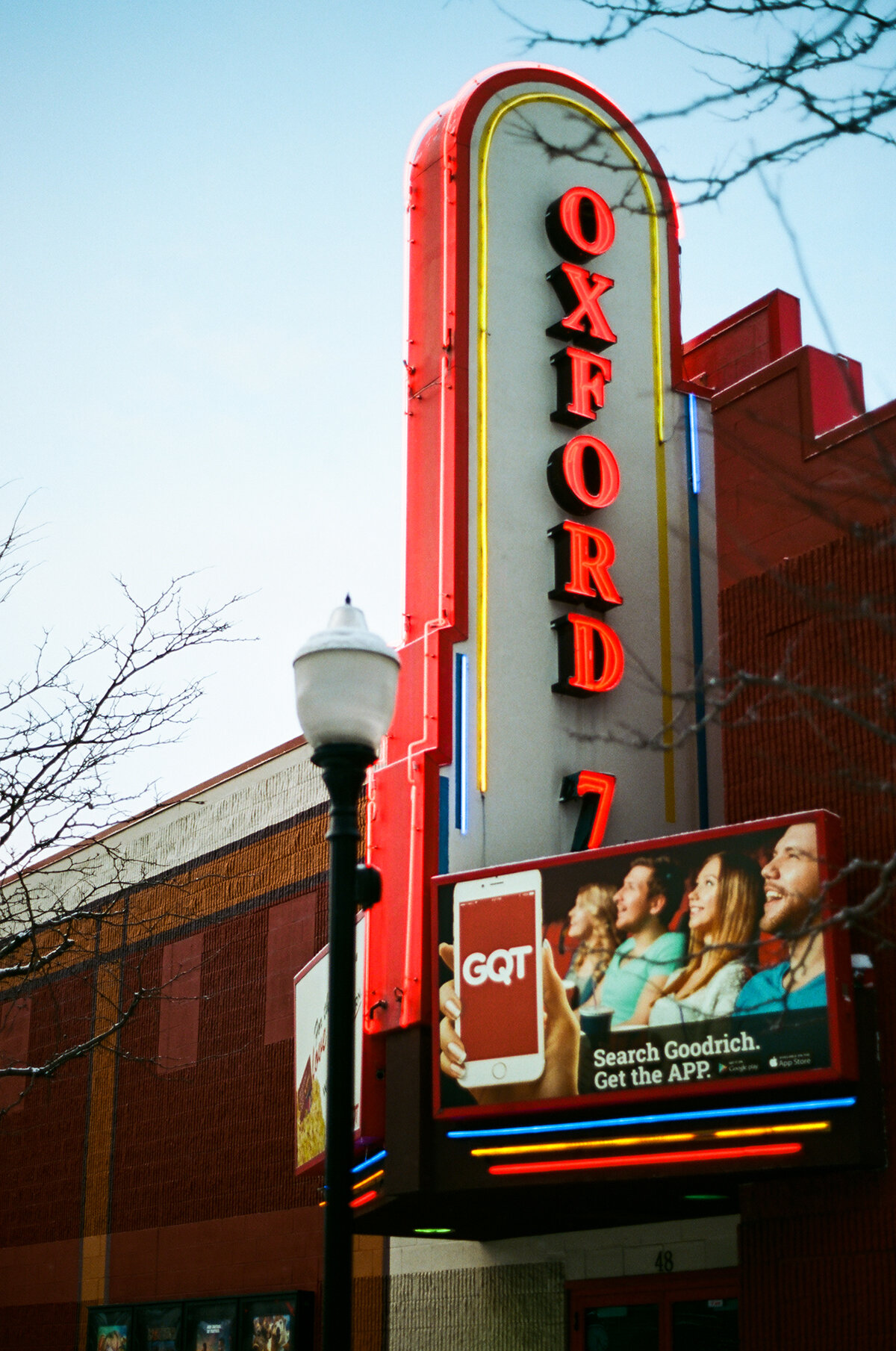
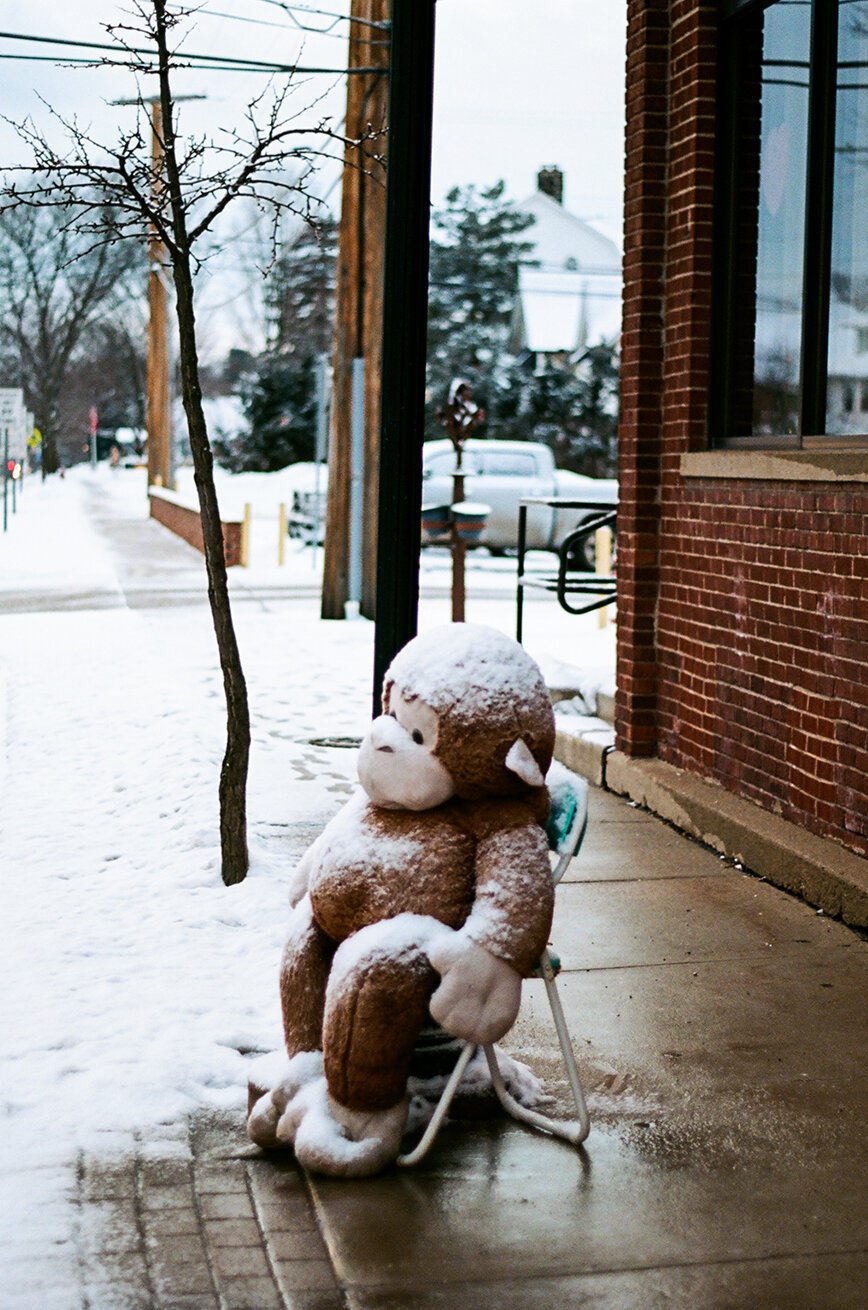

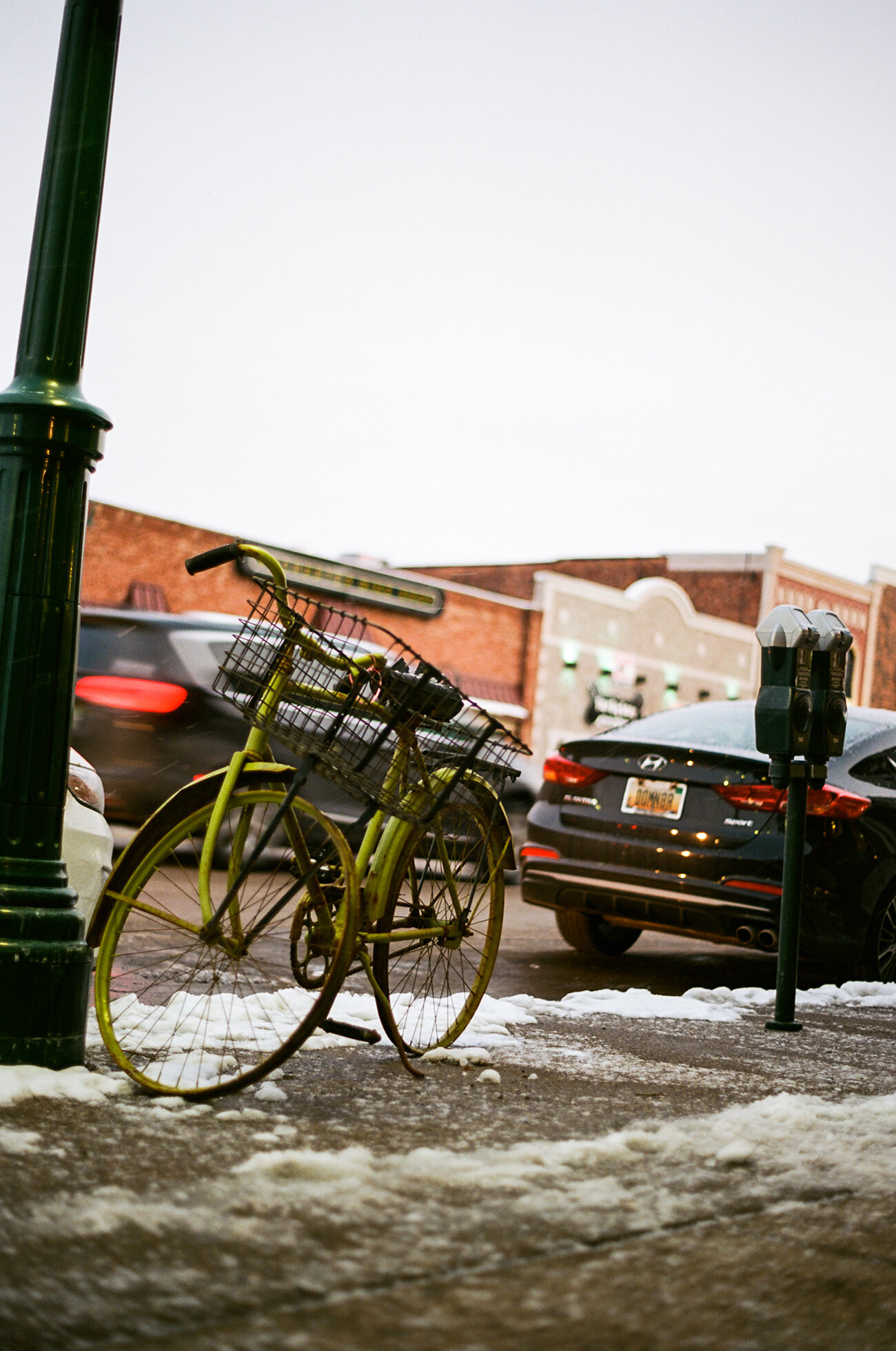
In Part 1, I described how I perceive my "hometown," which is actually an amalgamation of several cities in North Metro Detroit. The parts of my hometown that resonate with me most are the areas with history and personality. However, most of my hometown does not match this perception. Suburban corporate capitalism still has a strong hold. This gives most of the cities a vibe that is devoid of a unique personality. That much is changing. Mirroring my growth and maturity, my hometown has started to form its own unique identity. Part 2 is the fulcrum between this transition.
As independent business earns ground back from nationwide chain businesses, the old guard must fall in to the past. This image of an almost empty mall with unused massage chairs could not express this sentiment better. [As a side, Lakeside Mall was indeed this empty when I went. I didn't cherry pick this moment. The purchase of the mall and the revitalization project the new owners are planning seem to reflect my own hopes for creating a culture of its own.] On the surface, this image is far from the warm and welcoming vibe that you might imagine when talking about one's hometown. It feels bleak. Hopeless. Depressing even.
To me, there's more to this image than cynicism. I see hope. I see growth. I see a transition to a brighter and more vibrant future. The buds of change are starting to bloom and spring is around the corner.
Maybe one day, I'll come back to my hometown, and experience something new and different from what I remember. Summer will have come. All that hoping of a brighter future will have come to pass. My hometown might feel foreign to me, but I will feel pride knowing that it has grown alongside me.
Change takes effort and growing pain. It doesn't come fast or easy. Change takes time.
I love people. I love the unique way each person contributes to our culture and society. We all have the capacity to connect. However, sometimes the things around distract us. They distract us to how special person-to-person connection is.
If you haven't felt this urge: a need for connection. I challenge you to spend a month with minimal in-person interactions. There was a time last year when that was a reality for me. In that time, I cherished that brief moment talking to a Panda Express employee. A short conversation on the tram.
In that state, I developed a fiery passion to connect with others. A year later, and that value hasn't left me.
When I returned from my trip, I slowly got re-adjusted to a hometown that didn't holistically share that passion to connect. It wasn't the fault of the people. Things get in the way. Things made everyone too busy to spend the time and effort.
Independent businesses have an imperative role in connecting with their community.
Franchise owners can try to make up for the inherent lack of connection their chain presents. They can never replace that local diner that makes you feel at home. That local bar where everyone is a regular. The barber that always shares the town gossip. Knowing you are supporting your neighbor, patronizing these businesses is gratifying . They are a part of your community.
The identity of my hometown is slowing breaking the chains of corporate confinement. Independent and unique local businesses are coming back.
The change will bring community together, even if just marginally. With this change, fewer obstacles will be in the way of connection.
